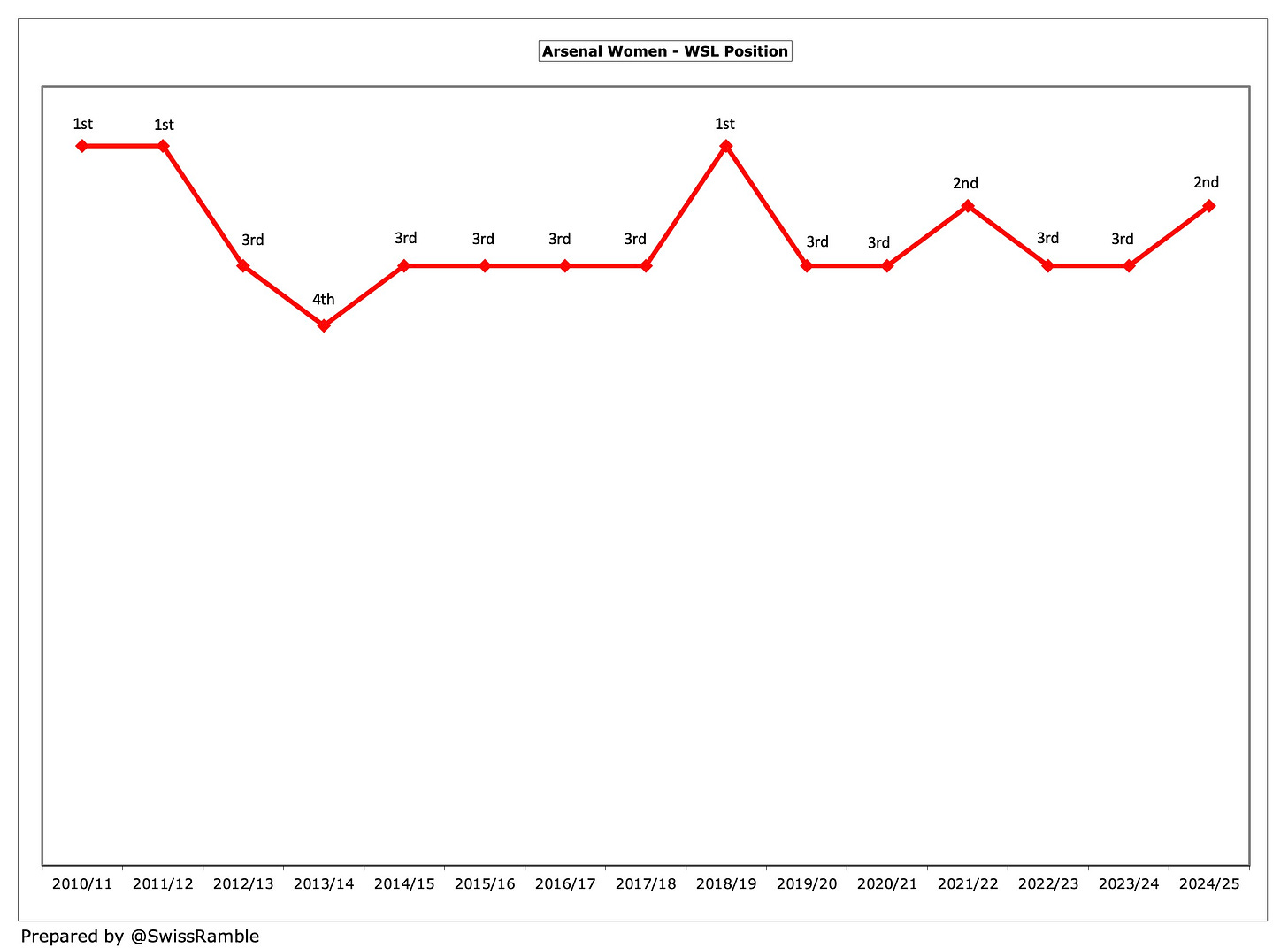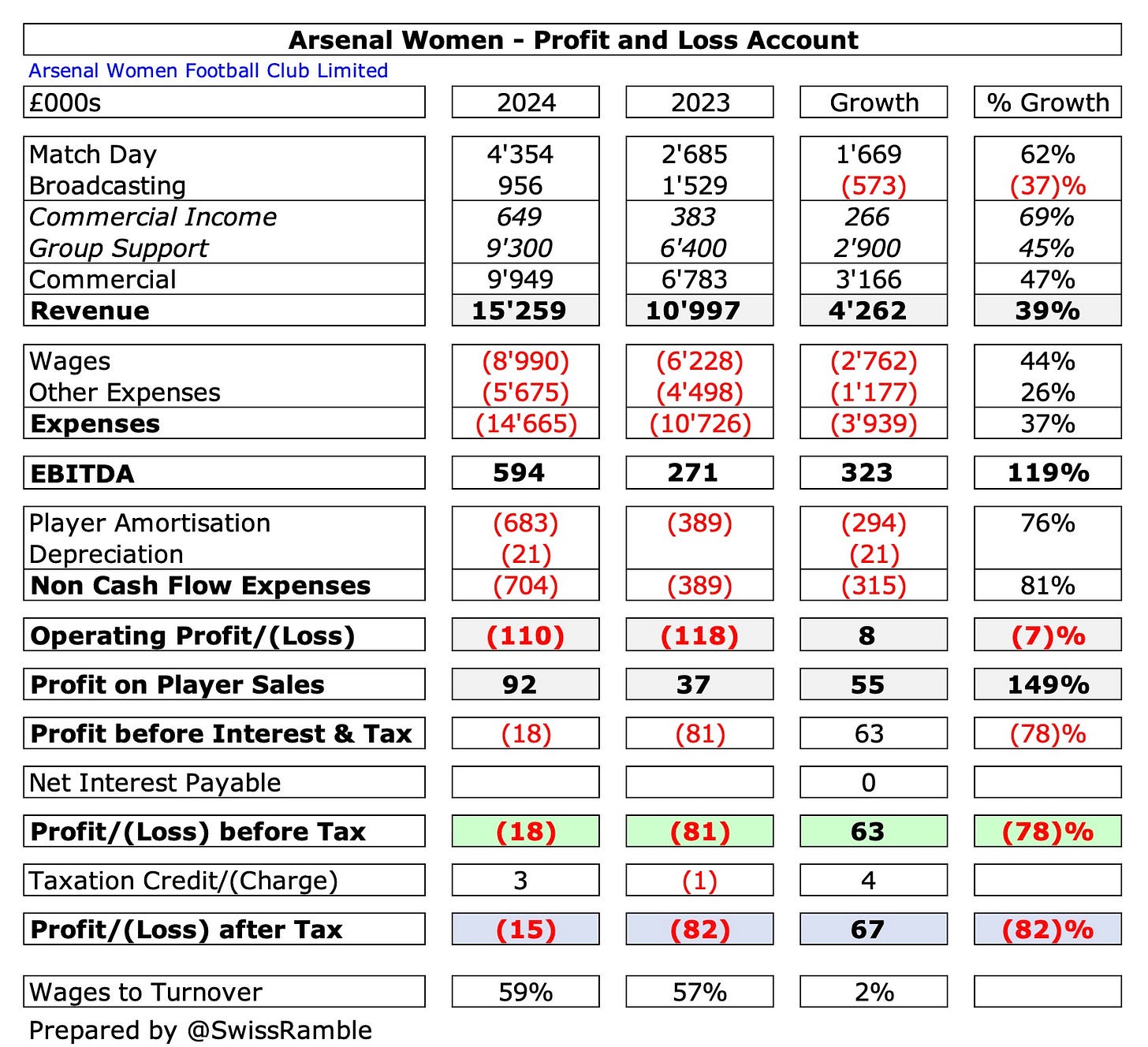To the surprise of almost everybody (at least outside the club), Arsenal Women have won the Champions League, beating the mighty Barcelona 1-0 in the final in Lisbon. The Catalans were understandably strong favourites, having won this prestigious competition three times in the last four seasons, while they were runners-up in the other year.
However, Arsenal produced a tactical masterclass, executing Renée Slegers’ plan to perfection with a lot of courage and no little skill. The Dutch coach had taken over from Jonas Eidevall in October, leading the Gunners to victories against Bayern Munich, Real Madrid and Olympique Lyonnais on their way to the final, so the victory was no fluke.
This is only the second time that an English club has won Europe’s premier competition, after Arsenal themselves triumphed back in 2007, beating Swedish club Umea with a goal from Alex Scott (whatever happened to her?)
Arsenal vs. Barcelona
Off the pitch, there is not a huge difference between Arsenal and Barcelona, as they both generated £15.4m revenue in 2023/24, though the Catalans’ £10.5m wage bill was higher than the London club’s £9.0m.
Both clubs more-or-less broke even, as Barcelona posted a £0.5m profit, while Arsenal only lost £18k.
League Position
Given their eminent position in women’s football, Arsenal’s recent record on the pitch has not been great.
Although they have finished in the top three of the Women’s Super League (WSL) every season since 2014/15, the last time that they were champions was in 2018/19. Since then, Chelsea have been dominant, winning the league six years in a row.
In that period, Arsenal only have two League Cup trophies to their name, which is not really good enough.
As the outstanding Leah Williamson said, “I’m so proud of what we do off the pitch, who we are, how we lead and how we carry ourselves, but I want to win and Arsenal should be winning.”
That dramatically changed last Saturday when Stina Blackstenius scored the only goal of the Champions League final, not only delivering silverware, but leading to joyous celebrations in North London.
This also gives me a perfect excuse to celebrate “Swiss Ramble” style by taking a look at Arsenal Women’s finances, including a few observations about the state of play in the WSL.
Profit/(Loss) 2023/24
Arsenal’s pre-tax loss reduced from £81k to £18k, as revenue shot up £4.3m (39%) from £11.0m to £15.3m and profit from player sales increased from £37k to £92k. However, these improvements were almost entirely offset by significant growth in operating expenses, which rose £4.3m (38%) from £11.1m to £15.4m.
The higher revenue was driven by strong growth in match day, up £1.7m (62%) from £2.7m to £4.4m, and commercial, up £266k (69%) from £383k to £649k. This was bolstered by a large increase in group support, which rose £2.9m (45%) from £6.4m to £9.3m.
On the other hand, broadcasting fell £573k (37%) from £1.5m to £956k, as Arsenal did not get past the first qualifying round of the Champions League.
The board continued to invest in the squad, so wages increased £2.8m (44%) from £6.2m to £9.0m, while player amortisation rose £294k (76%) from £389k to £683k. In addition, other expenses climbed £1.2m (26%) from £4.5m to £5.7m, while the club booked £21k depreciation for the first time.
Keep reading with a 7-day free trial
Subscribe to The Swiss Ramble to keep reading this post and get 7 days of free access to the full post archives.








